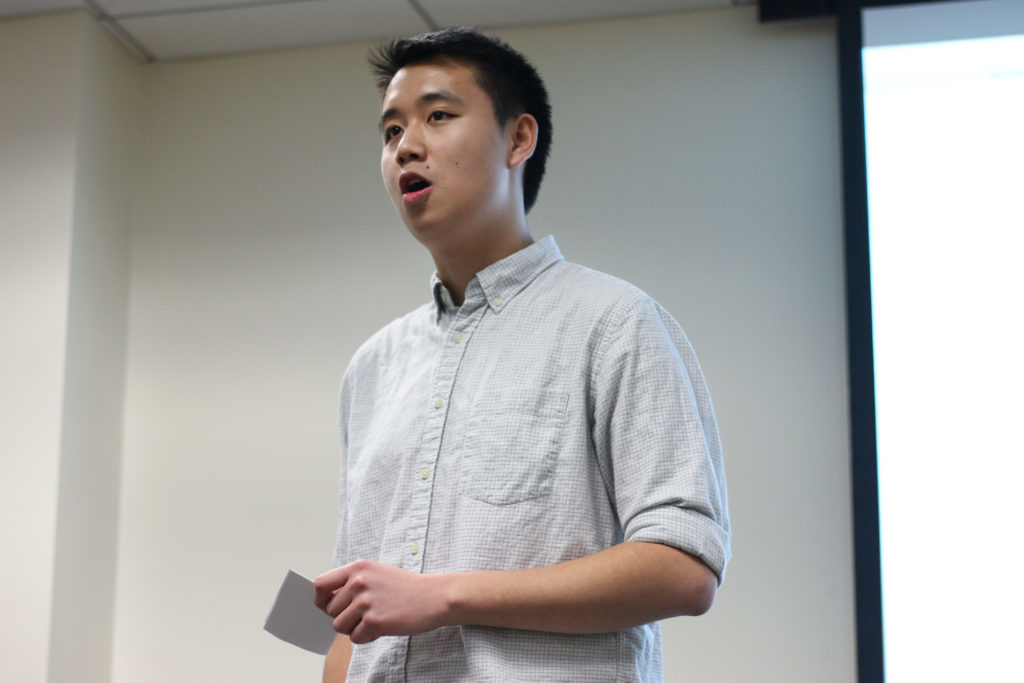Students will soon be able to purchase boxes of fresh fruits and vegetables on their GWorld cards.
The Student Association partnered with Hungry Harvest, a Baltimore-based produce delivery service, to pilot a program next semester allowing students to purchase the service on their GWorld cards. Student leaders said the program will give students the opportunity to eat nutritiously on a low budget and also support Hungry Harvest’s mission to lower food waste.
Logan Malik, the SA’s director of sustainability policy, said that in early February, students will be able to sign up at tables around campus to participate in the program. For $60, students would receive boxes of fresh produce on a biweekly basis over the course of two months, he said.
“We really think this is going to be a step forward as far as addressing food insecurity but also ensuring that students who are struggling with that have access to healthy food,” Malik said.
“With food insecurity being such a prevalent issue on our campus, we are always looking for innovative ways to provide affordable options to students.”
He said the boxes will include a mix of fruits and vegetables and that when signing up for the program, students will be able to indicate six products that they don’t like and don’t want included in their order.
During the trial period, the produce would be packaged and delivered to campus and stored in a central location, like the Center for Student Engagement, based in the Marvin Center, or The Store – GW’s food pantry in the basement of District House, Malik said.
He said conversations about the partnership first began last academic year but that planning started over the summer and the project came together this fall. It was advertised in the SA’s weekly email to students Monday.
If the trial period goes well, he said the SA will work with the CSE and Hungry Harvest to make the service “available and easy to use” for more students in the future.
“We’re going to be primarily gauging through number of sign-ups,” Malik said. “I think if we just see a bunch of people clambering and interested in this, I think that’s a pretty clear thing.”
He said organizers may also send out a survey to users after the pilot period to see how well the service worked.
SA President Peak Sen Chua said student leaders first began looking into Hungry Harvest because the organization already has a partnership with The Store and delivers extra produce to stock the pantry.
“Because of Hungry Harvest’s affordability and flexibility, we felt like this was something that students could really benefit from having easy access to,” Chua said in an email. “Additionally, we think that Hungry Harvest’s mission of reducing food waste is important and something that is worthy of support.”
Chua said Hungry Harvest provides often-coveted fresh produce at affordable prices. The service offers food at a price 20 percent lower than grocery stores by delivering produce that couldn’t be shelved at a supermarket. The fruits and vegetables it delivers would otherwise be thrown away because of an imperfect appearance or a surplus in product, according to Hungry Harvest’s website.
“With food insecurity being such a prevalent issue on our campus, we are always looking for innovative ways to provide affordable options to students,” he said.
Concerns about food insecurity led to the opening of The Store in fall 2016, which now has more than 500 users.
Lizzie Pearson, the SA’s deputy director of sustainability policy, said the program will reduce food waste and push students to try out “different produce they might not be as inclined to buy when shopping at the supermarket.”
“We are very excited about the SA’s work on this program and hope that it will benefit many of our shoppers in the near future.”
“Instead of throwing out perfectly good and nutritious produce, people can eat well at a low cost,” she said.
The SA also worked with Tim Miller, the associate dean of students, to help get the program up and running. Miller said he facilitated discussions with Hungry Harvest’s team last fall to see if the organization’s work with The Store could be expanded across campus. He said he is proud to see students leading the effort.
“Students will be leading this initiative and the CSE will provide logistical support and assistance to help bring this food recovery program to GW,” Miller said in an email.
Saru Duckworth, the vice president of The Store, said fresh fruits and vegetables are something shoppers request frequently, and the produce supplied by Hungry Harvest “always goes very quickly in The Store.” She said The Store’s executive board will also help advertise the new partnership to its shoppers.
“We are very excited about the SA’s work on this program and hope that it will benefit many of our shoppers in the near future,” she said in an email.
Sarah Roach contributed reporting.





